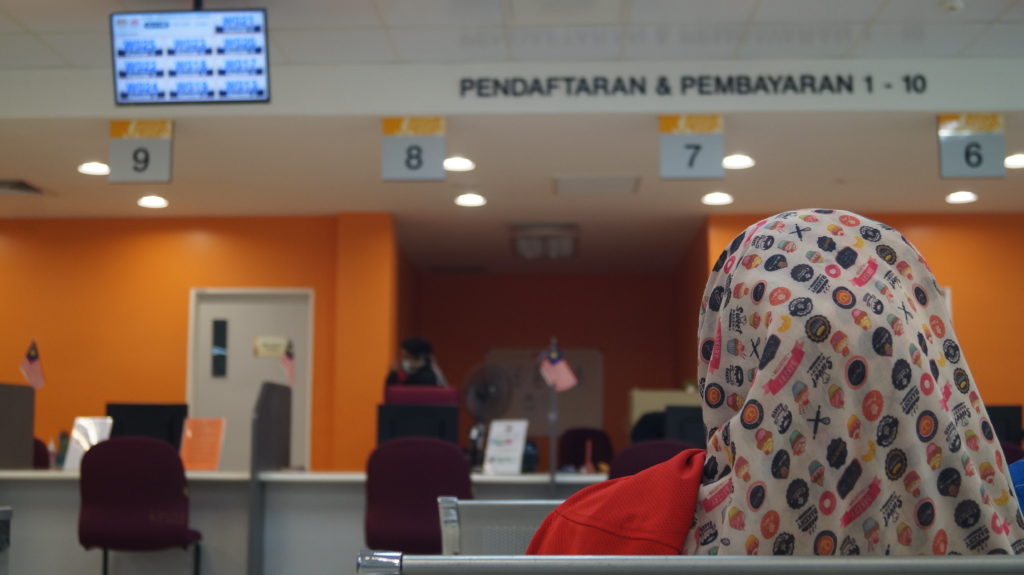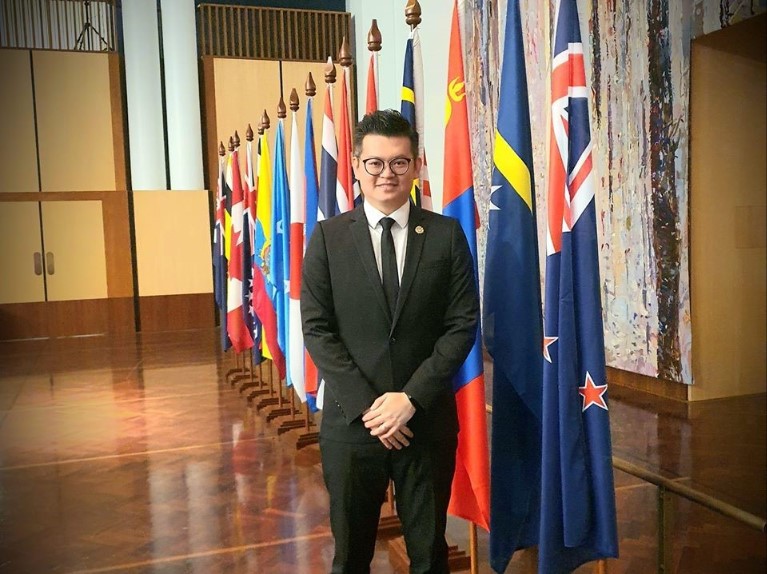KUALA LUMPUR, June 17 — A Sarawakian lawmaker has advocated legislative amendments to hold the government accountable for personal data collected through various state-owned contact-tracing apps to curb Covid-19 outbreaks.
Bandar Kuching MP Dr Kelvin Yii also told a recent webinar hosted by SocDem Asia, a regional group of social democrat parties and movements, that he believes the government should look into centralising a common mobile app throughout the country not only for the convenience of the public, but for accountability purposes in the management of sensitive data collected through those apps.
“In my personal point of view, I believe that the government should look into centralising a common app not just for the federal but also for all states.
“It’s not just for the convenience of the public, they don’t have to take out one app when they are in this location, and another app when they are in a different state or for a different reason,” Dr Yii told the webinar.
Multiple mobile apps (ie: MySejahtera, Gerak Malaysia, CovidTrace Sarawak, Qmunity, SELangkah, KLSTEP) have been rolled out by state and federal governments for various purposes, including contact tracing and travel applications during the Covid-19 outbreak. Most of the apps require users’ names and mobile numbers, while some, like MySejahtera, also requires one’s identity card number and address.
MySejahtera is an app by the federal government that monitors Covid-19 hotspots, users’ health, and can also be used to check-in at locations for contact-tracing purposes. Gerak Malaysia, also developed by Putrajaya, was previously used for applications to travel to other states during the Movement Control Order (MCO) that has since been lifted.
Qmunity is a mobile app by the Sarawak state government that residents of the state can use to check-in at business premises; it also informs visitors about the safety level of the outlet they’re patronising, ie: “safe” or “unsafe”. CovidTrace Sarawak is another app by the state government that can be used to record visits to business premises, and also record people’s face-to-face encounters through Bluetooth on their phones.
SELangkah is an app by the Selangor state government used at business premises to record visits by customers, who only need to fill in their name and mobile number. Kuala Lumpur City Hall (DBKL) has a similar contact-tracing app like SELangkah called KLSTEP. Certain shopping malls in Kuala Lumpur, like MidValley Megamall, develop their own QR codes for contact tracing, independent of government apps.
When confronted about the popular belief that dispersing data storage is actually better for data safety as one central database can easily be hacked and subsequently cause a breach of data privacy, Dr Yii disputed that belief by questioning the integrity of third parties in their handling of such sensitive data.
“While there are understandable arguments that it is safer for data to be stored in different public and private servers in comparison to a centralised database where all is needed is for the hacker to hack into a single database, but the main question is are we able to trust a third party or private party with such data, especially when they are not accountable to the people either through parliament or even answerable to people through an election.
“With a centralised data centre by the government, what is needed is proper enhancements to their cybersecurity features in that particular server, rather than risking multiple third parties’ servers which we may not be totally sure of their cybersecurity measures,” he explained.
The DAP lawmaker further noted that although some businesses have developed their unique versions of QR codes for storage of personal data in the name of contact tracing, such a practice is not controlled by the authorities. The risk of data breach and abuse, he said, remains high without a single party to hold accountable for.
“My concern when we do not have an official or centralised app is that people with bad intentions may just develop such an app and get people to register for it, collecting data and abusing it eventually.
“It is harder to control and enforce (regulations) without a centralised or official platform that we can promote to the people,” said Dr Yii.
“Fact of the matter is, the government already has much of our data in the first place and that is why they can be kept accountable to any breaches or misuse.”
Dr Kelvin Yii, Bandar Kuching Member of Parliament
Those mobile apps that were introduced for contact tracing purposes in times of the Covid-19 pandemic are currently not mandatory for residents of Malaysia to download and enrol themselves for reasons and concerns of privacy and cyber security, as explained by Dr Yii.
He also highlighted shortcomings in Malaysia’s legislation surrounding data privacy and protection, saying: “Our current laws are actually insufficient to handle a lot of the security concerns that have been raised.”
“The application or usage of such apps do have its benefit especially in tackling a pandemic, but concerns of cybersecurity are real and need to be properly addressed and the PDPA (Personal Data Protection Act) 2010 must be enhanced to cater for such needs.
“The introduction of the data protection law (PDPA) in 2010 did make some improvements to Malaysia’s data privacy – but, as technology advances and times change, this needs updating to better protect all types of data, including biometrics,” he added.
The PDPA governs the storage or processing of personal data of individuals, public and private sectors for commercial transactions in Malaysia to ensure that the data is not misused and misapplied by the parties concerned. However, federal and state governments are exempted from this law.
Dr Yii also pointed out that Malaysia was once scored the fifth worst in a study by UK-based technology website Comparitech on data privacy and surveillance in 47 countries and territories around the world.
“In the past, Malaysia had suffered several major data breaches. In particular, it highlights a data breach involving 46.2 million mobile phone accounts, and another involving 220,000 organ donors,” he said.
Covid-19 Pandemic Shows Need For Better Investment In Health Care

At the webinar, Dr Yii highlighted that investments into prevention of non-communicable diseases (NCDs), education, and health promotion are vital.
“This pandemic has highlighted the importance of prevention of NCDs, education and promotion or priority, because you see even when they announced the deaths of people with Covid-19, the majority were elderly with pre-existing conditions — diabetes, high blood pressure, and stuff like that.
“In Malaysia we are one of the fattest nations in Asia, (and) we are the sweetest in Asia because of diabetes. So, this has to be addressed,” Dr Yii noted.
The National Health and Morbidity Survey (NHMS) 2019 that was released recently reported that one in five Malaysian adults above the age of 18 live with diabetes, and that totals to about 3.9 million individuals.
Dr Yii further added that strengthening and promoting the primary health care sector could be one of the ways to combat the pressing issue with the rising NCD rate in the country, by decentralising primary health care and delivering that care to the community.
“One of the ways that we can do it is of course to promote and also to strengthen our primary health care, especially when we are dealing with NCDs.
“We need to bring health care to our community rather than centralising it in the tertiary or main hospitals,” he said.
In addition to that, Dr Yii also pointed out that the general infrastructure in Malaysia needs to be improved and said hospital bed capacity in the nation is currently below the average for developed nations.
“Right now, we are about 1.19 beds per 1,000 residents, we are below the average for developed nations, which is about 2.5 to 1,000,” he said, pointing out that rural clinics in many parts of the nation are vastly underdeveloped and it is a great weakness amid the Covid-19 crisis.
“Rural clinics in a lot of places are very underdeveloped, lack basic amenities, electricity and water, and of course do not have the capacity of handling an outbreak. One of our major concerns is the outbreak happens in the rural areas,” added the Sarawakian MP.
The third area of investment that Dr Yii thinks is fundamental for the country is human resources, as he pointed out that many medical personnel are “underpaid, underworked, and underappreciated.”
“This is very important, and it is investment into human resources,” said the federal lawmaker.
“Many of our medical personnel are underpaid, overworked, and underappreciated, especially in the public sector.”
Dr Kelvin Yii, Bandar Kuching Member of Parliament
“And in order to prevent brain drain, not just for these medical workers to go overseas, but also to private sectors, we need to invest in them,” he emphasised.
“Infrastructure and equipment help to facilitate good health care, but it is human doctors who treat and care for patients, and this has to be the priority for the country,” he explained.
When asked how much of the country’s GDP should be invested into health care after having faced the coronavirus crisis, Dr Yii said: “I don’t have an answer for that, but the more the merrier, there’s no magic number for it.”
He cited the World Health Organization (WHO)’s recommendation that for countries with a rank similar to Malaysia, seven per cent of the GDP is encouraged to be invested into health care.
“We are now hovering about two to three per cent, so of course there is much more that we can do,” said Dr Yii.








